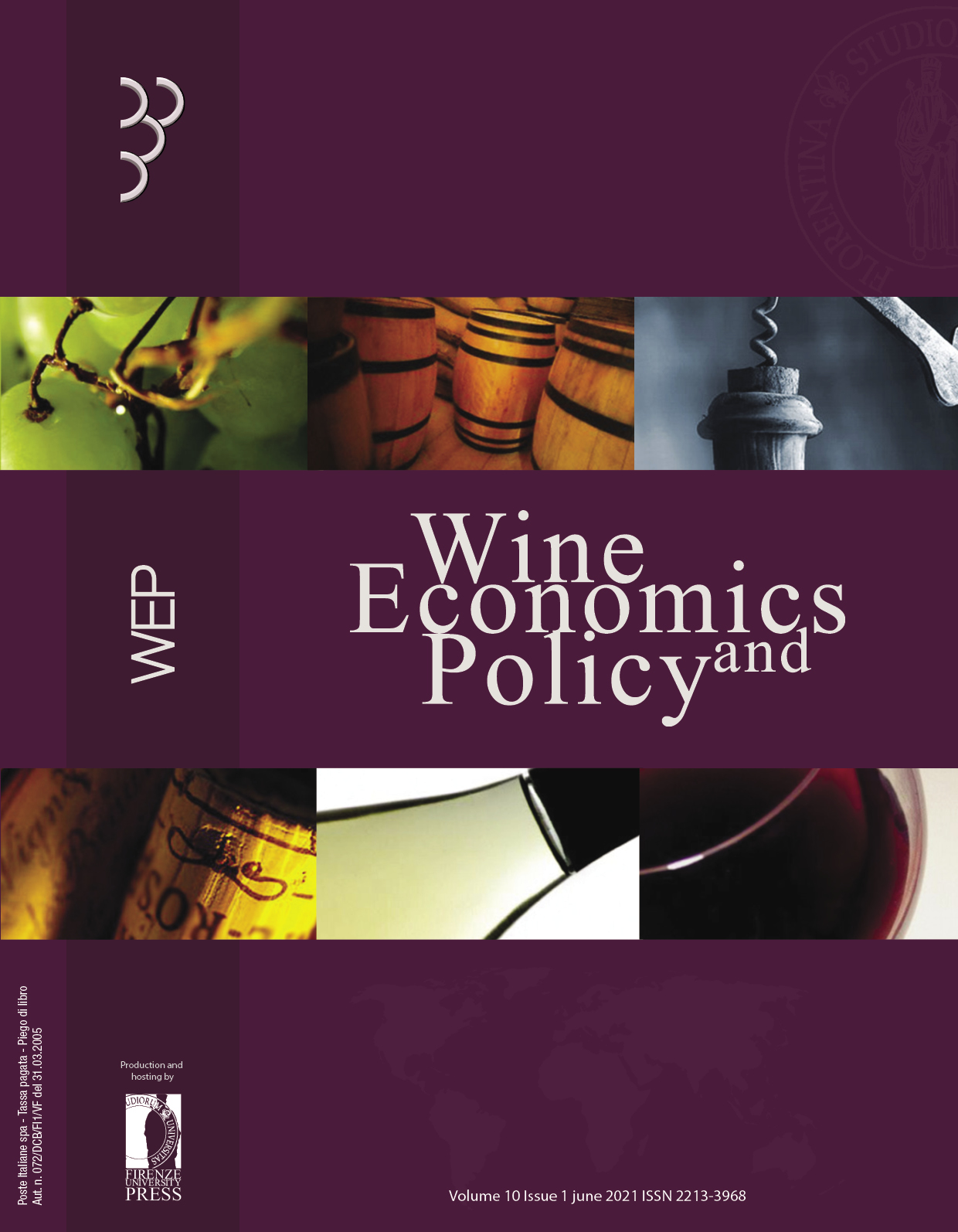Published 2021-04-21
Keywords
- wine preservatives,
- willingness to pay,
- discrete choice experiment
How to Cite
Abstract
The South African wine industry has recently launched the world’s first ‘no sulphite added’ wine made from indigenous Rooibos & Honeybush toasted wood chips. This wood chip contains antioxidant properties known to protect wine from oxidation. On the other hand, SO2 as a preservative, is often perceived by wine consumers as causing headaches and migraines. Differentiated wines based on their SO2 content may be a profitable marketing avenue for the struggling industry. We interviewed more than 600 wine consumers to investigate their perceptions of wine preservatives and preference for several wine attributes. Specifically, we use discrete choice experiments to elicit willingness to pay for the innovative alternative based on Rooibos & Honeybush wood chips. In addition to wine preservatives, we also examine consumers’ preferences for organic wine attributes and wine quality measured by a 100-point quality score and cost. Based on the results from the mixed logit model, we find that consumers are willing to pay an additional €3.53 (R56.48) per bottle of wine with natural Rooibos & Honeybush wood chips, while they are ready to pay €1.22 (R19.52) more for organic wine and €0.10 (R1.60) for each point on the quality score. Consumer preferences are not statistically different between red and white wine but differ considerably across consumers. In particular, those who believe SO2 in wine causes headaches are willing to pay at least three times more for replacing sulphur-based preservatives with a natural one. Marketing implications are offered for the wine industry.

